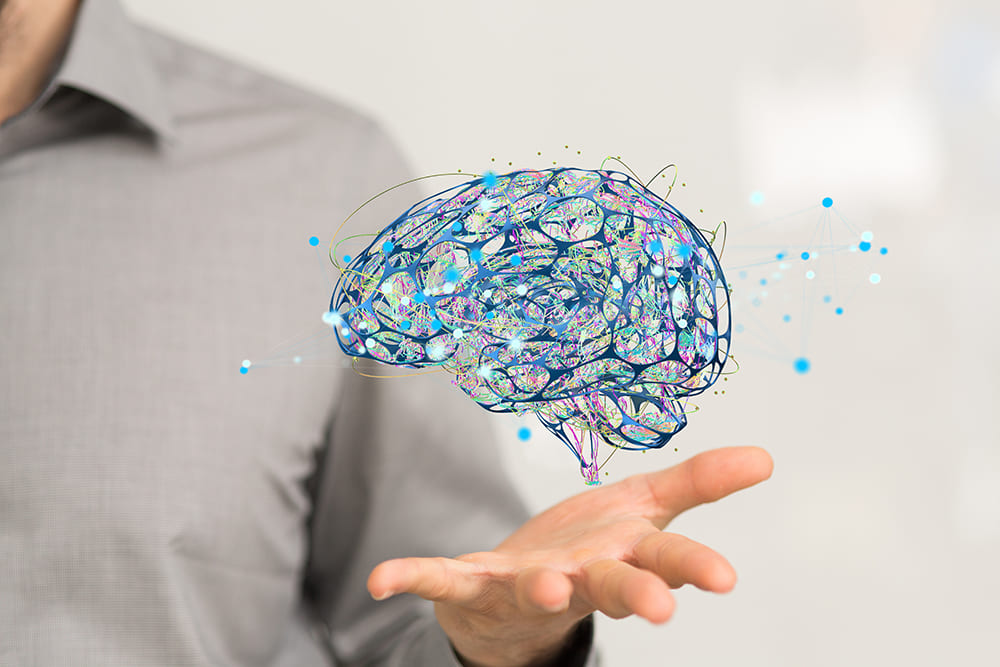How Facebook Is Using Artificial Intelligence
28 July 2021
Every day, nearly 2.5 billion people log in to one of the Facebook family of services, which include Messenger, Instagram, and WhatsApp.
And as users scroll, message, like, and click, Facebook continues to scoop up data, which they package up for advertisers. Behind the scenes, artificial intelligence allows Facebook to make sense of all the messy data it collects about our likes, dislikes, aspirations, and relationships.

Facebook’s billions of users and vast vault of data make it the perfect sandbox for the company’s developers and engineers to experiment, solve problems, and push the boundaries of what AI can do.
Here are a few of the ways Facebook is using artificial intelligence to evolve and continue to meet the needs of its ever-expanding user base.
Advancing Artificial Intelligence at Facebook
The world’s largest social networking platform has been using AI for years, and they continue to innovate to try to solve problems for users and make the experience even better. Here are a few of their recent innovations:
- Detecting deepfakes – Facebook has been working hard on detection models for deepfake content, and now they are speeding up their efforts. The company recently launched a Deepfake Detection Challenge (DFDC), and the top-performing AI model in the challenge could detect artificial videos with 82.56% accuracy.
- Instant translation – Facebook is using applied machine learning to enable (and continually improve) automatic translation of specific posts within users’ news feeds.
- Image recognition – Although users have enjoyed Facebook’s image recognition features for a long time, the company continues to improve on the software so users can easily search through photos without having to rely on tags or surrounding text.
- Helping visually impaired people – With the help of AI and deep learning, Facebook engineers are creating “talking pictures” that speak the content of a photo out loud, so visually impaired users can have a better experience on the platform.
- Preventing suicide – The Facebook technology can look for signs of trouble in users’ posts and comments from friends, then generate alerts and help people in crisis.
A Better VR Experience
Facebook recognized the need for better technology to unlock the full potential of augmented reality (AR) and virtual reality (VR), so they created the Oculus Quest, a 100% wire-free VR system.
Oculus Quest’s cutting-edge AI software calculates users’ positions and movements every millisecond, then translates those movements into VR. This new technology reduces or eliminates some of the problems associated with previous VR headsets, like visual stuttering, latency, jitter, and swimminess.
Giving You More of What You Love on Instagram
Over half of Instagram’s 500 million daily users visits the Explore feature to find new content they’ll love – and all those personalized, curated recommendations are powered by machine learning (ML).
Facebook’s AI software analyzes photos, stories, and videos users have previously interacted with, then gathers up some initial recommendations. That list is whittled down further by filtering out misinformation, policy violations, and spam. The algorithm takes the remaining content, ranks it, and displays it on the Explore tab in the app.
The more users interact with recommendation in Explore, the more accurate the AI becomes.
Facebook Shares Their AI Advancements
AI continually enables Facebook to forge new paths and make users’ lives easier, more fun, and more connected than ever before.
And because Facebook has publicly stated that the company wants to advance AI innovation by sharing many of their open-source tools and frameworks, in the next few years, we can expect to see more technological breakthroughs built on foundations from the AI experts in Facebook's engineering labs.
Related Articles
Technology in Action: My Key Takeaways on How AI and Quantum Are Accelerating Global Transformation
By now, “smart” versions exist of just about every home appliance, gadget and gizmos we can think of. However, manufacturers continue[...]
8 AI Ethics Trends That Will Redefine Trust And Accountability In 2026
By now, “smart” versions exist of just about every home appliance, gadget and gizmos we can think of. However, manufacturers continue[...]
The 7 Banking And Fintech Trends That Will Define 2026
By now, “smart” versions exist of just about every home appliance, gadget and gizmos we can think of. However, manufacturers continue[...]
Why The AI Supercycle Will Fail Without Advanced Networks
By now, “smart” versions exist of just about every home appliance, gadget and gizmos we can think of. However, manufacturers continue[...]
The Two-Tier AI Economy: Why Half Of Companies Are Being Left Behind And How To Close The Gap
By now, “smart” versions exist of just about every home appliance, gadget and gizmos we can think of. However, manufacturers continue[...]
Dreamforce 2025 Proved The Agentic Enterprise Has Arrived
By now, “smart” versions exist of just about every home appliance, gadget and gizmos we can think of. However, manufacturers continue[...]
Sign up to Stay in Touch!
Bernard Marr is a world-renowned futurist, influencer and thought leader in the fields of business and technology, with a passion for using technology for the good of humanity.
He is a best-selling author of over 20 books, writes a regular column for Forbes and advises and coaches many of the world’s best-known organisations.
He has a combined following of 4 million people across his social media channels and newsletters and was ranked by LinkedIn as one of the top 5 business influencers in the world.
Bernard’s latest book is ‘Generative AI in Practice’.










Social Media